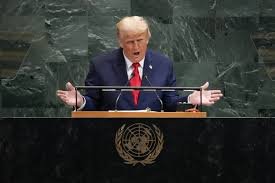Human rights lawyer and Senior Advocate of Nigeria (SAN), Femi Falana, has criticized the federal government and the Dangote Group over the recent dispute involving PENGASSAN and NUPENG, saying the controversy and subsequent strikes could have been avoided if due process had been followed.
In an interview with journalist Rufai, Falana expressed concern about the growing demonization of the Petroleum and Natural Gas Senior Staff Association of Nigeria (PENGASSAN) following reports linking the loss of over 600,000 barrels of crude oil and recent fuel price hikes to the union’s industrial actions.
According to Falana, under Nigeria’s constitution and labour laws, unionization is a right that cannot be negotiated away.
Also Read:
- PENGASSAN Blocked $750m Refinery Sale, Left Nigerians With Broken Plants — Now the Union Are…
- Oil Marketers, PENGASSAN, NUPENG Warn Against Creation Of Monopoly by PIB
- NUPENG, PETROAN Suspend Nationwide Strike After DSS-Brokered Agreement with Dangote Refinery
- PENGASSAN Escalates Dispute with $20bn Dangote Refinery, Orders Oil and Gas Supply Cut
He cited Section 40 of the 1999 Constitution, which guarantees freedom of association, including the right to form or join trade unions. He further referenced Articles 87 and 98 of the International Labour Organization (ILO) Conventions, both of which Nigeria has ratified, allowing for collective bargaining and unionization.
“Under the law, you cannot negotiate unionization,” Falana said. “The entire strike was avoidable if the Dangote Group had recognized that union rights are guaranteed by the constitution and labour laws. The government cannot pretend otherwise.”
Falana criticized what he described as the hypocrisy of the federal government, accusing it of failing to act swiftly to prevent the industrial unrest despite having the legal authority to mediate through established mechanisms.
“The government is required by law to apprehend industrial actions to maintain peace. But when you allow workers to strike over issues that have been settled since colonial times, it shows negligence,” he said.
The senior lawyer also reminded critics that trade unionism has deep roots in Nigeria’s history.
“The first trade union in Nigeria was formed in 1912, even before the amalgamation of 1914. It is therefore too late in the day to say unions won’t be allowed in any workplace,” Falana asserted.
He commended the State Security Service (SSS) and the Office of the National Security Adviser (NSA) for intervening to prevent the situation from escalating further, warning that without their involvement, the strikes could have had “more paralytic effects” on the nation’s economy.
Falana concluded by urging both the federal government and private employers, including the Dangote Group, to respect the rights of workers to unionize and engage in collective bargaining, emphasizing that such rights are not privileges but constitutional entitlements.
























